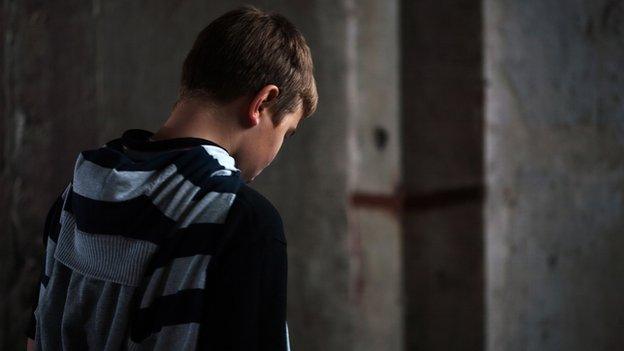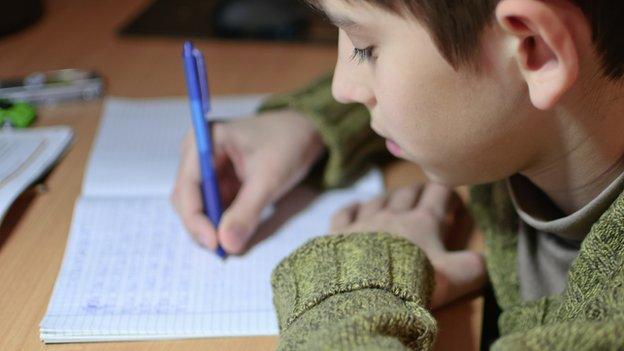Pupils' mental health tops head teachers' concerns
- Published

Cyberbullying and domestic violence were concerns for more than half of the heads surveyed
Head teachers are more concerned with pupils' mental health than any other issue related to well-being, a survey of 1,180 school leaders suggests.
Two-thirds of head teachers polled for management support service, The Key, named mental health as the top concern.
Domestic violence and cyberbullying were the next biggest concerns, named by 58% and 55% of heads respectively.
Brian Lightman, leader of the ASCL heads' union, said it was difficult for heads to obtain support for pupils.
Home backgrounds
"There certainly has been an increase in the number of pupils who are displaying different types of mental health problems," he said.
"It's often arising from difficult home backgrounds or a form of abuse or other types of mental health issues such as ADHD."
He said all of this required support, which head teachers were finding it hard to access from local child mental health services.
Research for The Key also found that an increasing number of schools were employing their own counsellors, or drawing on voluntary services, to improve their pupils' well-being.
A spokeswoman for The Key highlighted British Association of Counselling and Psychotherapy estimates that between 64% and 80% of secondary schools in England offer some kind of counselling.
Treatment targets
One of The Key's members, an associate head teacher of a secondary school in north London has expressed her concern over accessing the support needed due to diminishing budgets.
Mr Lightman said schools had always employed multi-disciplinary teams and numerous staff fulfilling different roles.
He added: "Academy chains have the capacity to employ people who work across their schools. That's not a solution to this problem."
An investigation by the charity, Young Minds, last year found more than half of councils in England had cut or frozen budgets for child and adolescent mental health between 2010-11 and 2014-15.
The Department of Health says it has increased funding and is introducing treatment targets so patients get the care they need when they need it.
It said funding for mental health increased between 2013-14 and 2014-15 by £300m to £11.7bn.
- Published9 January 2015

- Published4 July 2015
